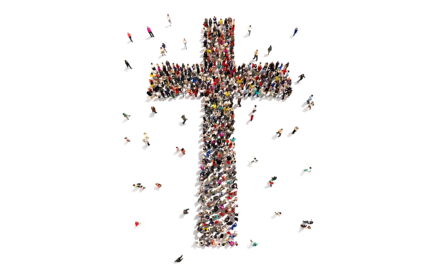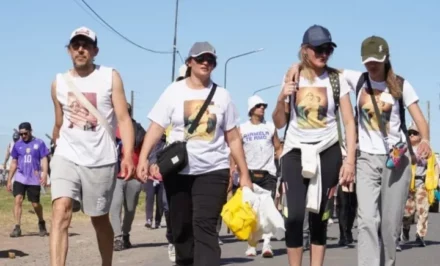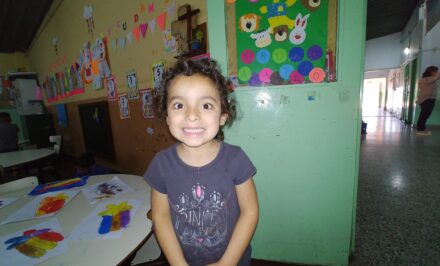 org. From now on we will publish statements of Pope Frances as our “door to the week” for each step on our way in the everyday life of our pilgrimage. They are statements from the previous week, statements that will inspire us to become increasingly missionary pilgrims, who live in solidarity, who are poor, joyful, open and simple pilgrims who pray for renewal – in and with the Church – renewal in the genuine spirit of the covenant. Without humility there is neither effective service nor inner and genuine renewal. Actually it is very simple, because Francis speaks about the Grace of 2014. Let us pray for this grace.
org. From now on we will publish statements of Pope Frances as our “door to the week” for each step on our way in the everyday life of our pilgrimage. They are statements from the previous week, statements that will inspire us to become increasingly missionary pilgrims, who live in solidarity, who are poor, joyful, open and simple pilgrims who pray for renewal – in and with the Church – renewal in the genuine spirit of the covenant. Without humility there is neither effective service nor inner and genuine renewal. Actually it is very simple, because Francis speaks about the Grace of 2014. Let us pray for this grace.
![]()
WEEK 24/2013
The whole of life is a pilgrimage. What is important is to meet Jesus on the way of life. Meeting HIM gives us faith that he is the one who gives life to us. Let Jesus lead you, yes, allow yourselves to be led by Jesus! Often faith is something we take for granted in life: We say “I believe in God”, and that is good, but how do you live this in your lives? It is necessary for the faith to become a present experience. When we meet the Lord, he surprises us. We can really call him the “Lord of surprises”. Be open for God’s surprises. Thank you!
To the youth of CL
What determines what happens today is not the human person. It is money; money governs the world. Yet God the Father did not entrust the task of safeguarding creation to money, but to us men and women. It is our duty! Instead of doing this men and women are sacrificed to the idols of prosperity and consumerism. That is the throw away culture. If the computer breaks down it is a tragedy, but poverty, the suffering, the dramas of so many people have long been part of normality. If in a winter’s night here in the neighbourhood, in the Via Ottaviano, someone dies, it is not worth mentioning in the news. If there are children in so many parts of the world that don’t have enough to eat, it doesn’t get mentioned in the news; it seems to be normal. That can’t be true! All these things become normal: If any number of homeless people die on the streets from the cold, it isn’t worth reporting. But when the stock exchange in some cities falls by ten points, it is a tragedy. If someone dies, it isn’t news, but when share prices fall by ten points, it is a tragedy. That is how people are thrown away as though they were garbage.
General Audience, 5 June. (unauthorised translation)
This, then, is a lesson for all of us, and also for the Church of our time. If we let ourselves be led by the Holy Spirit, if we mortify our selfishness to make room for the love of the Lord and to His will, then we will find peace, then we will be builders of peace and peace will spread around us.” Source: Asia News safeguarding creation
To pilgrims from Bergamo, 3 June
But the mercy of Jesus is not just sentiment: indeed it is a force that gives life, that raises man up! [This Sunday]’s Gospel tells us this as well, in the episode of the widow of Nain (Luke 7:11-17). Jesus, with his disciples, is just arrived in Nain, a village in Galilee, at the very moment in which a funeral is taking place. a boy is buried, the only son of a widow. Jesus’ gaze immediately fixes itself on the weeping mother. The evangelist Luke says: “Seeing her, the Lord was moved with great compassion for her (v. 13).” This “compassion” is the love of God for man, it is mercy, i.e. the attitude of God in contact with human misery, with our poverty, our suffering, our anguish. The biblical term “compassion” recalls the maternal viscera: a mother, in fact, experiences a reaction all her own, to the pain of her children. In this way does God love us, the Scripture says. And what is the fruit of this love? It is life! Jesus said to the widow of Nain, “Do not weep,” and then called the dead boy and awoke him as from a sleep (cf. vv. 13-15). The mercy of God gives life to man, it raises him from the dead. The Lord is always watching us with mercy, [always] awaits us with mercy. Let us be not afraid to approach him! He has a merciful heart! If we show our inner wounds, our sins, He always forgives us. He is pure mercy! Let us never forget this: He is pure mercy! Let us go to Jesus!
Vatican Information Service, Angelus, 9 June
When you give alms, do you look into that person’s eyes, touch his hand; do you have physical contact? It is not important if you don’t have change with you to give him, but touch is hand, tell him that you pray for him.
In Buenos Aires at a Caritas Conference
A girl asked why he had forsaken the wealth of the papacy, living at the Domus Sanctae Marthae instead of the Apostolic Palace apartments, and other similar choices. He answered: “
It’s not just about wealth. For me it’s a question of personality. I need to live among people and if I lived alone, perhaps rather isolated, it wouldn’t be good for me. A professor asked me this question: ‘Why don’t you go live there?’ and I answered, ‘Listen, professor, it’s for psychiatric reasons.’ Because … that’s my personality. That apartment [in the Apostolic Palace] isn’t so luxurious either, don’t worry. But I can’t live alone, do you understand? And well, I believe that, yes, the times talk to us of so much poverty in the world and this is a scandal. Poverty in the world is a scandal. In a world where there is so much wealth, so many resources to feed everyone, it is unfathomable that there are so many hungry children, that there are so many children without an education, so many poor persons. Poverty today is a cry. We all have to think if we can become a little poorer, all of us have to do this. How can I become a little poorer in order to be more like Jesus, who was the poor Teacher?” Returning to the original question, he finished: “It’s not a question of my personal virtue. It’s just that I can’t live alone.” All the rest, not having so many things, “is about becoming a little poorer”.
Meeting with children from Jesuit schools, Vatican Information Service
To a student, who asked about the doubts regarding belief that he sometimes has and what he could do to help him grow in faith, Francis answered:
Journeying is an art because, if we’re always in a hurry, we get tired and don’t arrive at our journey’s goal. If we stop, if we don’t go forward and we also miss the goal. Journeying is precisely the art of looking toward the horizon, thinking where I want to go but also enduring the fatigue of the journey, which is sometimes difficult … There are dark days, even days when we fail, even days when we fall. [Sometimes] one falls but always think of this: don’t be afraid of failures. Don’t be afraid of falling. What matters in the art of journeying isn’t not falling but not staying down. Get up right away and continue going forward. This is what’s beautiful: this is working every day, this is journeying as humans. But also, it’s bad walking alone: it’s bad and boring. Walking in community, with friends, with those who love us, that helps us. It helps us to arrive precisely at that goal, that ‘there where’ we’re supposed to arrive.” Don’t let yourselves be robbed of hope. Please, don’t let it be stolen from you. … Where do I find hope? In the flesh of Jesus who suffers and in true poverty.
Meeting with children from Jesuit schools, Vatican Information Service
![]()
The aim of the pilgrimage
is the renewal of the covenant of love
as a missionary and unifying creative force,
i.e. internally the renewal of the Schoenstatt Family
and externally the shaping of covenant culture.













